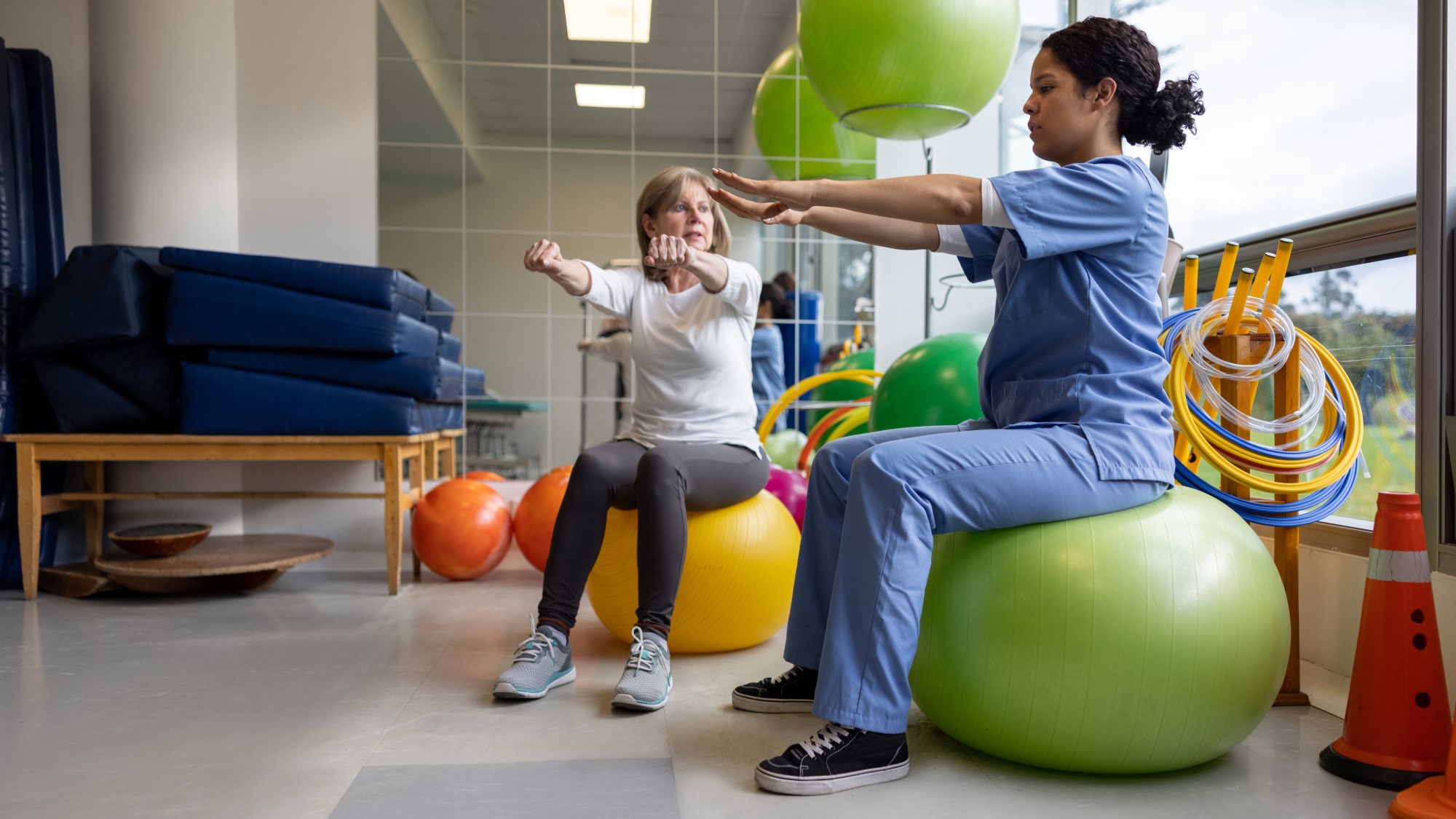There are few professions in higher demand than physical therapists. Between 2020 and 2030, the field is poised to grow by a whopping 21%, which the U.S. Bureau of Labor and Statistics even calls “much faster than average.” It’s even expected the field will see 15,600 employment openings annually during this time. But as the field has grown, so too have patient needs.
Because there are many factors that determine a patient’s health outcome, health professionals, physical therapists included, must look beyond individual ailments to align with person-centered care to better treat patients. And this starts in the classroom.
A qualitative study by physical therapy education scientists reviewed a study by Carnegie Foundation for the Advancement of Teaching found that, in short, students from several sectors, including physical therapy, are generally well taught when it comes to overall knowledge and the practical skills to apply that knowledge in a patient setting. But many times, physical therapy education programs fall short when it comes to the “soft skills” of recognizing larger patient factors at play like social background, economic status and other social determinants of health.
A curriculum that’s changing the way physical therapy is taught
Lack of transportation, limited availability of health care resources and living without health insurance coverage are three prevalent shortcomings that can lead to poorer health outcomes. Even a lack of internet access can be associated with COVID-19 mortality. Health care professionals need to be better educated to be able to respond appropriately to these circumstances.
Carlow University’s forthcoming Doctor of Physical Therapy program curriculum is changing the way the field is taught. Not only will students gain the institutional knowledge and professional skill required of physical therapists, but they’ll also become well-versed in seeing beyond the patient’s impairment and see how their life circumstances can impact their recovery.
“When we were in school, no one taught us these things. We just happened to be the sort of people who cared at an individual level, and we were left to learn the value of these skills over time,” said Kunal Bhanot, PT, Ph.D., program director and associate professor in Carlow University’s Doctor of Physical Therapy program. “I think we need to do away with the phrase ‘soft skills’ as they are, in fact, one of the ‘hard skills’ that go hand-in-hand with the overall care of the patient.”
Carlow has taken this to heart by designing a curriculum that collaborates with the University’s English and Art departments wherein doctoral candidates will closely examine creative works as a window to the artist’s motivation and reasoning. The idea is to foster the professional skill of determining and analyzing the deeper causes at play in a patient’s life.
“We’ve even encountered students who have been unsuccessful in clinical settings because they lack these social skills,” said Navpreet Kaur, PT, DPT, associate professor at Carlow. “It’s not because of the technical aspects; most schools prepare students well for the board exam and the clinical knowledge. But many of the students who don’t succeed in clinical environments fall short because they lack that bedside manner and treating the patient beyond their disease.”
Familiarity with the tools and resources available for physical therapists is an essential part of their education as well. To that end, Carlow University will educate first-year doctoral candidates alongside the professionals they’ll encounter in a real-world setting, including occupational therapists and social workers. An on-campus simulation lab will also enhance the learning experience, making for a seamless transition from classroom to workplace.
“Experiential learning is a hallmark of this program and serves as a truly unique opportunity for our doctoral candidates,” said Katie Schroyer, PT, DPT, director for clinical education in Carlow’s physical therapy program. “Physical therapists must be able to learn from lived experiences. Fortunately, this is available in abundance from Carlow’s Early Learning Center, Campus School, Sisters of Mercy, student body and more.”
With a culturally sensitive approach to patient care, Carlow University’s Doctorate of Physical Therapy program will offer a thorough, well-rounded approach to a physical therapist’s professional training. For when these “soft skills” of treatment are practiced alongside the field’s best practices, patient outcomes improve.
